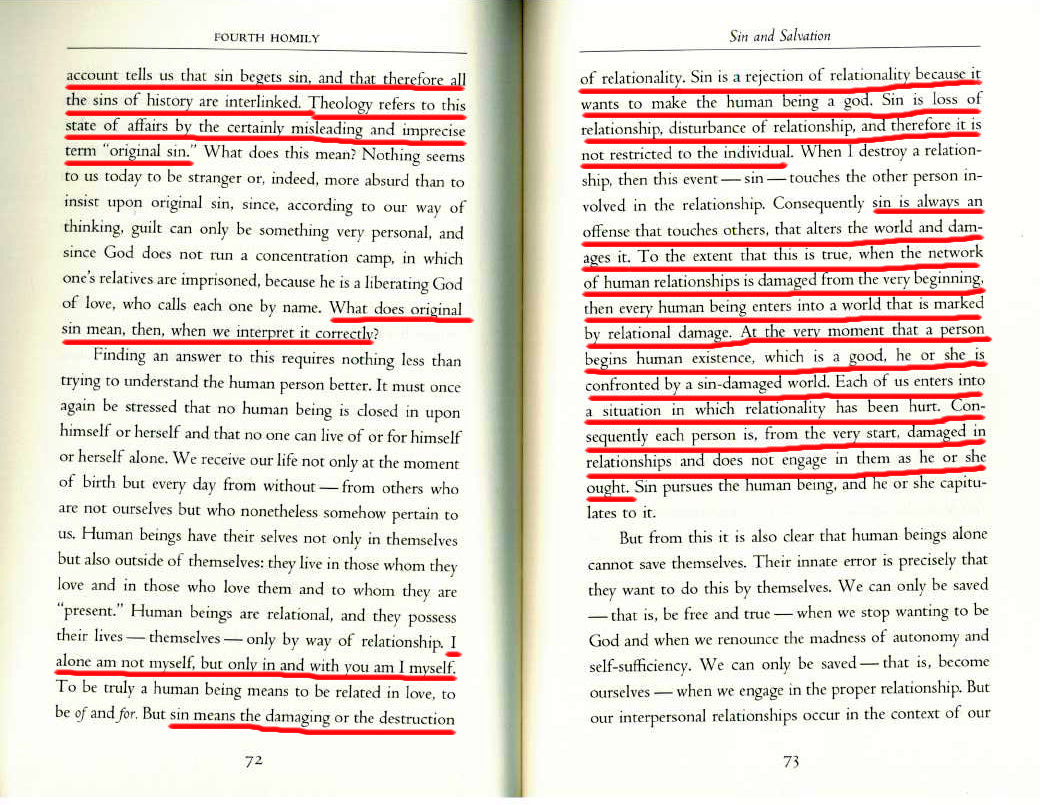I will define “Adam and Eve” as those two beings created from effectively nothing by God as fully developed, evolved, functional and conscious human beings that had no parents approximately 6000 years ago. If you are saying, given the above definition, that “Adam and Eve” were real persons
Ahh… thank you for that! Now, I think, I can see where the disconnect is!
It’s in your definition, I’m afraid.
On one hand, you’re claiming that the Church allows for an acceptance of certain forms of evolution. (Which, of course, she does!) On the other hand, though – in your definition – you’re defining things purely in terms of a fundamentalist, literalist hermeneutic for Genesis 1-3. And that’s your problem right there. You see, if we look at evolution as a possibility, then we are implicitly saying that a literalist, fundamentalist interpretation of the creation epics is incorrect. So, if you want to rail against an interpretation, then you need to argue against the interpretation which allows for evolution.
Essentially, you’re saying “well, the Church allows me to believe in heliocentrism”, and then turning around and saying “the Church is wrong, since it says that the universe rotates around the earth!” See what I mean?
So… your definition of ‘Adam and Eve’ is in error. Again, I strongly recommend that you read the Catechism. In there, you’ll find what the Church
really teaches. And, you know what the Church
doesn’t teach? Much of your ‘definition.’ You’ll not find, in those pages, the following assertions:
- created from nothing
- in fact, Adam and Eve are depicted as being created from pre-existing matter
- No parents
- in fact, the Catechism doesn’t make this claim.
- Approximately 6000 years ago
- The Catechism doesn’t make this claim, either.
So, in fact, what you’ve actually been doing here is setting up a straw man. Has it been fun knocking it down?

Maybe it’s time to see what the Church
actually teaches, and begin working with
that information…
We all know Adam and eve is a myth.
Allegory? Sure. Symbolic language? Yep. But not a ‘myth’, if by that term you mean “something that’s untrue.”

